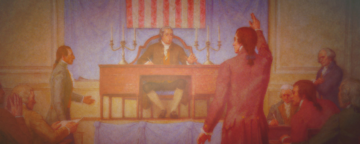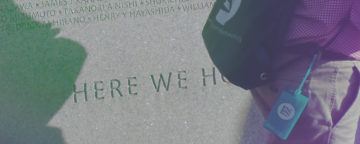Annenberg Classroom and other partners in the Civics Renewal Network will take part in the National Council for the Social Studies Annual Conference in New Orleans, the nation's largest social studies conference.


Annenberg Classroom and other partners in the Civics Renewal Network will take part in the National Council for the Social Studies Annual Conference in New Orleans, the nation's largest social studies conference.

Pollster Peter Hart will conduct his latest set of focus groups with voters in Columbus, Ohio, on Nov. 16 for the “Voices of the Voters” project of the Annenberg Public Policy Center.

By the 2050s, parts of the Arctic Ocean once covered by sea ice much of the year will see at least 60 days a year of open water, according to a new modeling study led by a University of Colorado Boulder researcher now at APPC.

Chris Satullo, the former vice president for news and civic dialogue at WHYY/NewsWorks, will join the Annenberg Public Policy Center as a professional in residence for the 2015-2016 spring semester.

Philadelphia students got the opportunity to talk with two mayoral candidates about how to improve the city in a forum sponsored by the Rendell Center for Civics and Civic Education and the Annenberg Public Policy Center.

At a time when the scientific consensus on critical issues such as vaccinations and climate change is being called into question, a comprehensive new handbook will examine the current state of the science of science communication.

The public's view of scientific research was the focus of an American Academy of Arts & Sciences round table discussion hosted by the Annenberg Public Policy Center in October.

CBS News congressional correspondent Nancy Cordes will present the 2015 Annenberg Lecture, "Chasing the 'Scooby' Van and Tracking Trump to the Border: Covering the Wild Ride That is the 2016 Presidential Campaign."

One American in three says that the Bill of Rights guarantees the right to own your own home, while 1 in 10 thinks that it guarantees the right to own a pet, according to an APPC national survey released for Constitution Day.

Thousands of immigrants from across the globe will be sworn in as American citizens, while students nationwide will take part in the “Preamble Challenge” to celebrate Constitution Day (Sept. 17).